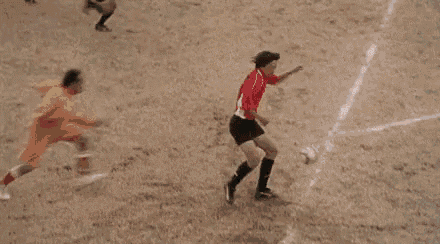Two weeks ago, I gave a presentation to a traveling soccer team on How to Improve Performance through Nutrition.
It was what you’d expect from 16- and 17-year-old boys. Lively, engaging and fun as I tried to pack as much information into 45 minutes as possible. I could have made the presentation much longer, but um, did I mention they’re 16- and 17-year-old boys? Our time together was just about right.
I asked questions from the start, and one of my questions was, “How many of you have shown up for a practice hungry or tired?” About three-quarters of them raised their hands — I didn’t expect to see that many hands in the air.
Next question: “How many of you have shown up for a game tired or hungry?” Again, about 75 percent of the class raised their hands. Whoa! Not good.
I asked them if they could remember why it happened. Some of them told me they just didn’t eat enough. Others didn’t know why. Some of them didn’t eat enough on purpose because they didn’t want to go into the game or practice feeling full. I had some work to do in a very limited time.
I had two objectives. The first was to help them become aware of not only when they get hungry or tired entering a game or practice, but also why.
The why is where I asked them to think about what they had to eat that day, what they had to drink, the last time and what they ate that day, how they slept the night before, and how much they ate the day before. This asking why is the first step to improving athleticism — at least with this group it was.

They all show up for practice, and they all show up for games. But not many of them show up for meals. And meals = ENERGY.
I broke down several seemingly complicated topics into simple terms, such as metabolic equivalent of a task (METS) as it relates to a soccer player, Basal Metabolic Rate (BMR), formulas for calories burned by a competitive soccer player, a formula to determine how many approximate calories a competitive soccer player at a specific height and weight needs to eat, favorable versus unfavorable foods, and their effect on the body.
They remained highly engaged and highly focused because this was about how they could get better at what they love doing, and I was making it fun.
My second objective was not to turn them into counting calorie drones. Instead, it was about getting them to start by making small changes and by adding more food to a couple of meals a day. In fact, I told them to not make any drastic changes. Start slowly; work into it.
Less pressure in this respect would equate to success. They liked my suggestion, and I had confidence that some of them would take action.
A week later, one of the parents of the boys contacted me and said that his son was adding more food and feeling better, and it was already making a difference on the field. He also told me that the boys had a tournament coming up and they would be playing in several consecutive games if they did well. Because of the tournament and my presentation, the coach and parents were taking the team out for a hearty dinner the night before the tournament.
The boys ended up going 3-0 in the tournament and when I heard the news, I couldn’t help but smile in a very big way.
That made my day!
I love making an impact with the stuff I love to do.
No Comments to "Show up for Games and Show up for Meals"